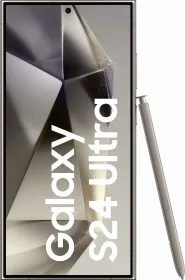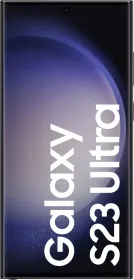AI has become an indispensable thing in smartphones these days, especially with the flagship ones. The main players in this are the Google Pixels, Galaxy S, and Apple’s iPhones. In this comparison, we’ll dive into the AI performance of the three major flagship devices of 2024: the Google Pixel 9 Pro XL, iPhone 16 Pro, and Samsung Galaxy S24 Ultra.
Smartphones and SoCs Involved
- iPhone 16 Pro: Apple A18 Pro
- Google Pixel 9 Pro XL: Tensor G4
- Samsung Galaxy S24 Ultra: Snapdragon 8 Gen 3
We’ll be using the Geekbench AI benchmark to analyze their AI performance. Although there are still questions about how this benchmark translates into real-world use, it provides us with an overview.
Scores are given in Single Precision, Half Precision, and Quantized categories, with the NPU (Neural Processing Unit) handling most of the AI tasks. That said, the CPU and the GPU are also used for AI tasks from time to time. In fact, until about a couple of years ago, several smartphones used only the CPU and the GPU for all kinds of AI tasks.
1. iPhone 16 Pro—Apple A18 Pro
- NPU Single Precision: 4392
- NPU Half Precision: 32560
- NPU Quantized: 44781
Apple’s Neural Engine in the A18 Pro is known for its high AI capabilities, and the benchmark results show that it dominates AI tasks, especially with its quantized score.
2. Google Pixel 9 Pro XL—Tensor G4
- NPU Single Precision: 392
- NPU Half Precision: 4587
- NPU Quantized: 8305
The Tensor G4 significantly lags behind the iPhone. Although it can run Gemini nano on device, the scores suggest that it isn’t as powerful as Apple’s.
- NPU Single Precision: 381
- NPU Half Precision: 369
- NPU Quantized: 821
Samsung’s AI performance in the S24 Ultra is underwhelming, with the lowest scores in all categories. While the Snapdragon 8 Gen 3 excels in other areas, its AI prowess is lacking compared to both the iPhone and Pixel. Hopefully, the Snapdragon 8 Gen 4 (8 Elite) will improve on this.
ALSO SEE: Sports Bikes Under 1.5 Lakh Price List in India 2024
CPU and GPU Performance
The CPU and GPU also contribute to AI tasks, and here’s how they compare:
CPU:
- iPhone 16 Pro:
- Single Precision: 4370
- Half Precision: 7573
- Quantized: 5999
- Google Pixel 9 Pro XL:
- Single Precision: 2023
- Half Precision: 2064
- Quantized: 3082
- Samsung Galaxy S24 Ultra:
- Single Precision: 2281
- Half Precision: 2327
- Quantized: 3434
GPU:
- iPhone 16 Pro:
- Single Precision: 5712
- Half Precision: 6641
- Quantized: 5891
- Google Pixel 9 Pro XL:
- Single Precision: 724
- Half Precision: 848
- Quantized: 812
- Samsung Galaxy S24 Ultra:
- Single Precision: 1071
- Half Precision: 1571
- Quantized: 1504
Once again, the iPhone 16 Pro leads the way in the CPU, with the Google Pixel 9 Pro XL and Samsung Galaxy S24 Ultra being very close. The GPU performance on the S24 Ultra is better than the Pixel, though.
ALSO SEE: Poco Mobile Phones Price List in India
What’s the takeaway?
Apple has been using NPUs (Neural Engine) on its iPhone chips for a long time now. However, it is now that they are truly able to take full advantage of the NPU. With Apple Intelligence, Apple is leaning heavily into on-device AI.
Several Apple Intelligence features like Genmoji, Siri enhancements, writing tools, image playground, memory movie, and call recording and transcription are all processed on the device. This keeps things private, with less data being sent to the cloud.
On the other hand, Google’s Tensor G4 chip also does some AI tasks on-device, like transcription and translation, but many of its features still rely on cloud-based AI. Samsung is in a similar situation, with cloud reliance for most advanced AI features, except for basic tasks like transcription and translation.
The advantage of on-device AI is clear—better privacy and quicker processing. Although Apple isn’t completely using on-device AI, they are just more of it.
Qualcomm and Google need to catch up by improving their AI NPUs and also the integration with the software. Having good hardware without properly utilizing it isn’t clever.
ALSO SEE: Best Tablets Under 20000 in India (Oct 2024)
Bottom Line
All of this is still evolving, and as chips like Snapdragon 8 Gen 4 and MediaTek’s upcoming Dimensity 9400 arrive, we could see more focus on improving AI performance across the board. For now, in terms of on-device AI, the iPhone 16 Pro is the clear winner.
You can follow Smartprix on Twitter, Facebook, Instagram, and Google News. Visit smartprix.com for the latest tech and auto news, reviews, and guides.

































